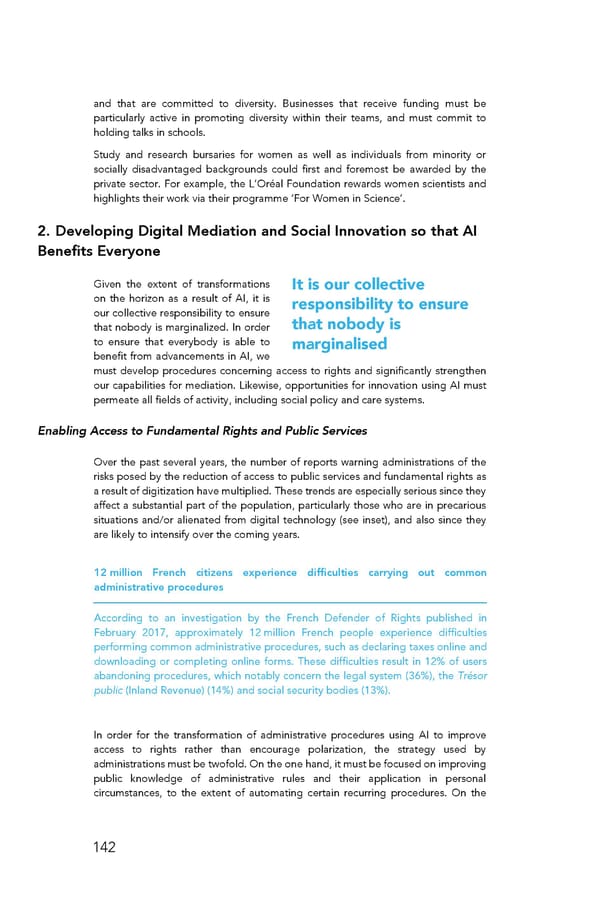and that are committed to diversity. Businesses that receive funding must be particularly active in promoting diversity within their teams, and must commit to holding talks in schools. Study and research bursaries for women as well as individuals from minority or socially disadvantaged backgrounds could first and foremost be awarded by the private sector. For example, the L’Oréal Foundation rewards women scientists and highlights their work via their programme ‘For Women in Science’. 2. Developing Digital Mediation and Social Innovation so that AI Benefits Everyone Given the extent of transformations It is our collective on the horizon as a result of AI, it is responsibility to ensure our collective responsibility to ensure that nobody is that nobody is marginalized. In order to ensure that everybody is able to marginalised benefit from advancements in AI, we must develop procedures concerning access to rights and significantly strengthen our capabilities for mediation. Likewise, opportunities for innovation using AI must permeate all fields of activity, including social policy and care systems. Enabling Access to Fundamental Rights and Public Services Over the past several years, the number of reports warning administrations of the risks posed by the reduction of access to public services and fundamental rights as a result of digitization have multiplied. These trends are especially serious since they affect a substantial part of the population, particularly those who are in precarious situations and/or alienated from digital technology (see inset), and also since they are likely to intensify over the coming years. 12 million French citizens experience difficulties carrying out common administrative procedures According to an investigation by the French Defender of Rights published in February 2017, approximately 12 million French people experience difficulties performing common administrative procedures, such as declaring taxes online and downloading or completing online forms. These difficulties result in 12% of users abandoning procedures, which notably concern the legal system (36%), the Trésor public (Inland Revenue) (14%) and social security bodies (13%). In order for the transformation of administrative procedures using AI to improve access to rights rather than encourage polarization, the strategy used by administrations must be twofold. On the one hand, it must be focused on improving public knowledge of administrative rules and their application in personal circumstances, to the extent of automating certain recurring procedures. On the 142
 For a Meaningful AI - Report Page 140 Page 142
For a Meaningful AI - Report Page 140 Page 142